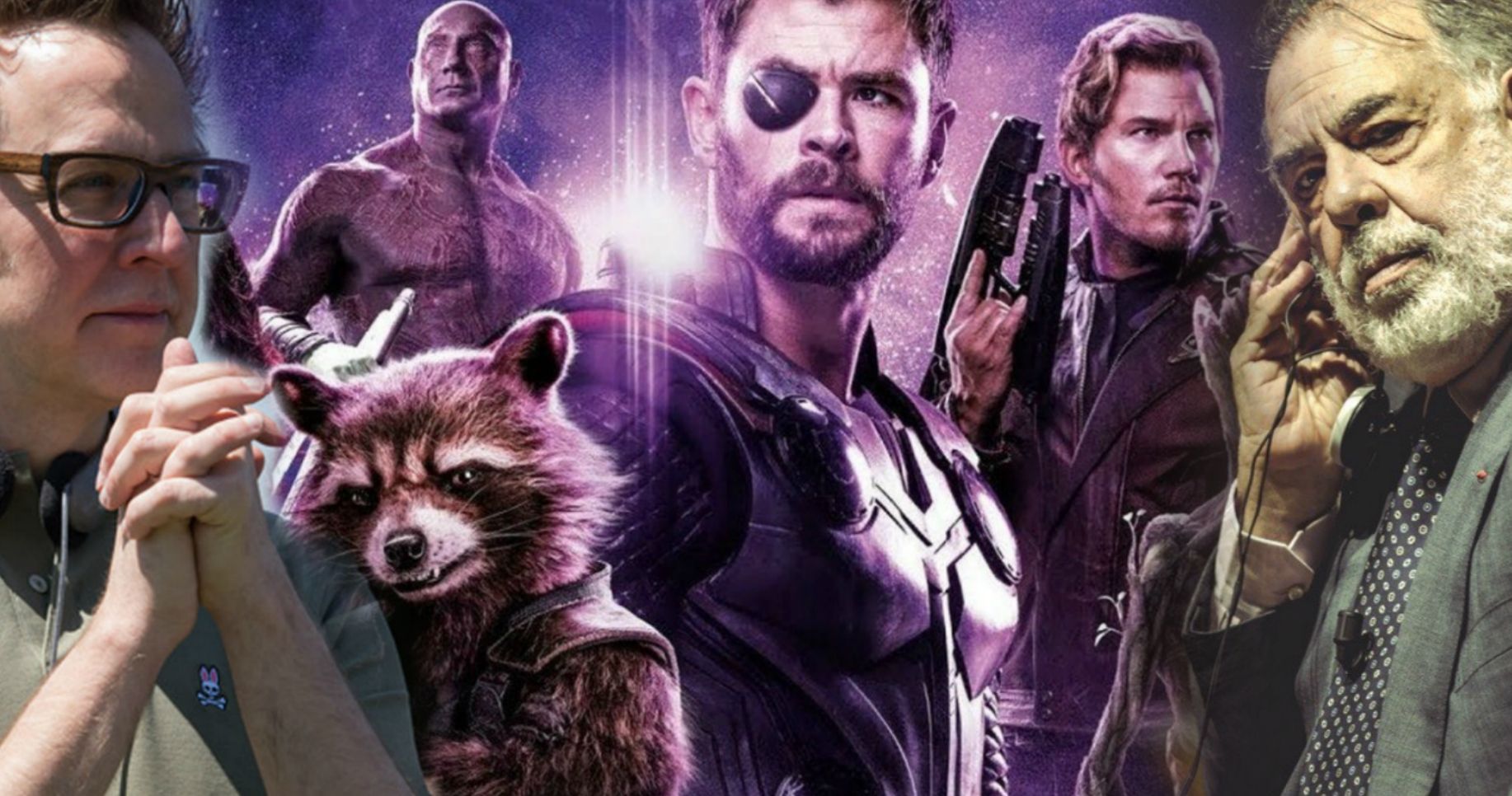Another member of the Marvel Cinematic Universe family has chimed in on the debate about whether comic book movies should be considered "cinema". Director James Gunn responded to comments made by legendary filmmaker Francis Ford Coppola via Instagram the other day, calling for understanding between the two sides.
The debate hit new heights when Martin Scorsese expressed his dislike for the genre by claiming the superhero films are not "cinema". His words were met with backlash from fans and creators alike. Joss Whedon (The Avengers), Taika Waititi (Thor: Ragnarok) and Damon Lindelof (HBO's Watchmen) were among those that expressed their disagreement. At the time, Gunn (Guardians of the Galaxy) was fairly open about his thoughts, saying, "Martin Scorsese is one of my 5 favorite living filmmakers. I was outraged when people picketed The Last Temptation of Christ without having seen the film. I'm saddened that he's now judging my films in the same way."
James Gunn is weighing in once again following the release of a recent interview with Apocalypse Now director and co-writer, Francis Ford Coppola. The award winning filmmaker doubled down on Scorsese's sentiment, claiming he was too kind and didn't go far enough in his criticism. Coppola said that Marvel films are not cinema "because we expect to learn something from cinema, we expect to gain something, some enlightenment, some knowledge, some inspiration." He argued that they are essentially shallow in that you don't get anything additional out of it with multiple viewings, adding, "Martin was kind when he said it's not cinema. He didn't say it's despicable, which I just say it is."
James Gunn is helping to lead the charge of comic book film supporters through his social media. In response to the interview, he posted a picture of the beloved duo Groot and Rocket and attempted to build a bridge between the two sides. Gunn drew parallels between booming genres of the past and the current wave of superhero flicks by equating the dissension among filmmakers in the early days of gangster movies and westerns.
Just as comic book movies are monopolizing current generations' interests, Gunn argues, so too did gangster movies in their time. Gunn added a personal touch to his thoughts by including an anecdote about his grandfather. When a young Gunn was "raving" about the Star Wars films, his grandfather saw no difference between that and on of the genre's most influential and cinematically praised films, Kubrick's 2001: A Space Odyssey. Gunn summarized his thoughts by saying.
"Many of our grandfathers thought all gangster movies were the same, often calling them "despicable". Some of our great grandfathers thought the same of Westerns, and believed the films of John Ford, Sam Peckinpah and Sergio Leone were all exactly the same. Superheroes are simply today's gangsters/cowboys/outer space adventurers. Some superhero films are awful, some are beautiful. Like westerns and gangster movies (and before that, just MOVIES), not everyone will be able to appreciate them, even some geniuses. And that's okay."
Gunn was behind some of the genre's most beloved characters. He created a tonal and story shift in the MCU with his Guardians of the Galaxy films and is expected to do the same for DC in his upcoming The Suicide Squad. He will return in the coming years to Marvel for Guardians of the Galaxy Vol. 3.
This likely won't be the end to this debate in this quickly shifting entertainment landscape. Forty years ago, releasing a film with critical praise was the ultimate goal, and for creators like Scorsese who brought us Goodfellas and The Taxi Driver and Coppola's Apocalypse Now and The Godfather, those films had something profound to say. Now, there are fewer studios and fewer theaters as the television and streaming platforms explode. While there are some who despise this shift, others are embracing the boom in stories that can be told. Meanwhile, comic book films, reboots and sequels are practically guaranteed money as they're considered a safer choice for studios. It's inevitable that the more variety we see in productions, the more dissent we are going to see in opinion. Hopefully, we can all take a page from Gunn's book and understand that "that's okay."
You can check out Gunn's full statement on his Instagram.

